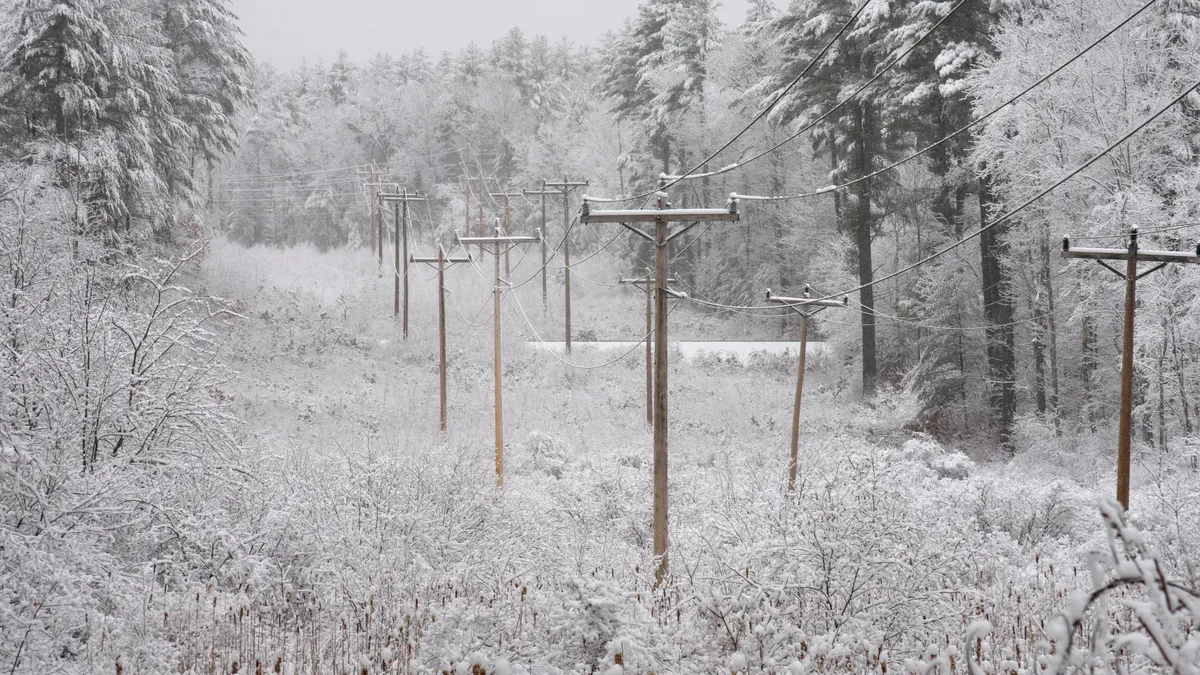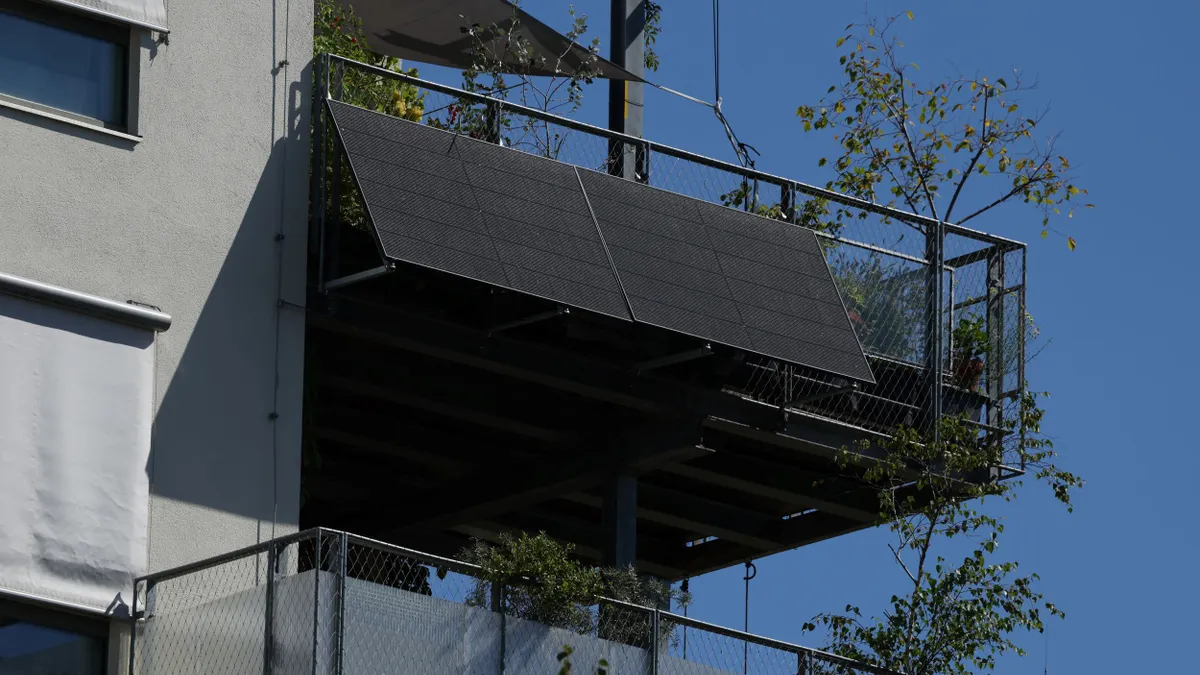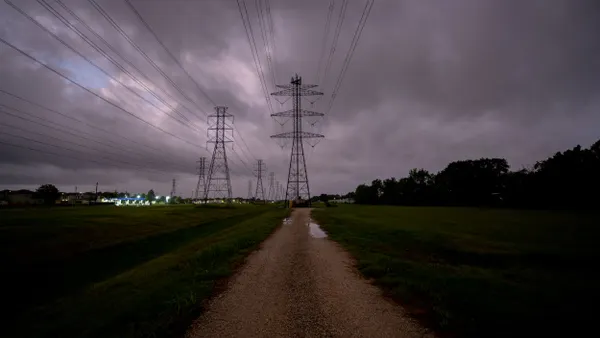Dive Brief:
- Connecticut and Massachusetts regulators on Tuesday called on Eversource Energy to defend the doubling of its its standard offer supply rate, to 24.2 cents/kWh that took effect Jan. 1.
- The Connecticut Public Utilities Regulatory Authority scheduled the technical meeting in response to a request by Connecticut Senate Democrats who criticized the “exorbitant and punishing rate increase” sought by Eversource.
- Eversource told regulators natural gas prices have the biggest impact on the cost of electric supply in its service territory and gas pipeline capacity is “severely constrained” for electric generation on the coldest days, limiting capacity and leading to higher prices. Liquefied natural gas supplies also are costly, pushed up by global market demand and the loss to Europe of natural gas from Russia following its assault on Ukraine, the utility said.
Dive Insight:
Eversource said building infrastructure in New England is “costly, litigious and slow” and new pipeline or LNG facilities are unlikely. The key challenge is to establish a bridge fuel supply for electric generation, the utility said.
"It’s a winter problem. It is not a summer problem,” James Shuckerow, director of energy supply at Eversource, said at the nearly three-hour meeting, referring to pipeline constraints.
Natural gas pipelines have “plenty of capacity” in the summer, but it’s limited when temperatures plummet, he said. At times such as cold snaps in January 2022 natural gas generators in New England were “100% dependent on LNG,” he said.
Fuel constraints in New England are not new. At an all-day technical conference in September in Vermont, the Federal Energy Regulatory Commission heard more than two dozen regional stakeholders discuss the region’s gas woes.
What’s different now is that political pressure is mounting over the spike in electricity prices.
“These high costs will be difficult for many to bear,” Sen. Bob Duff, D, the Connecticut Senate’s majority leader, told regulators. The standard rate increases are “unacceptable and cruel.”
Sen. Norm Needleman, D, co-chairman of the Connecticut legislature’s Energy and Technology Committee, said policymakers should review the process used to develop the standard service rate.
“I hope that what we come out of this with maybe modifies the standard service procurement plan if necessary so that we don’t find ourselves in this situation ever again,” he told regulators. “I don’t know that that's possible, but that's sort of the idealized version of what we'd like to get to.”
PURA Chair Marissa Gillett said regulators are at the “beginning of the inquiry and not the end of the investigation into standard service and the procurement processes.”
Regulators called the meeting to investigate the processes used by Eversource for procuring standard service, including details on the timing and nature of competitive solicitations and differences in standard service procurement in Connecticut, Massachusetts and New Hampshire where Eversource operates.
PURA said it also wants information on the “drivers of and justification behind the differences” between the standard service procurement processes in each state.
Gillett asked Eversource, which does not earn a profit on standard service, if it’s motivated to achieve the least cost generation rates for customers.
Shuckerow said the utility selects the best pricing when bids come in. “Much discussion happens when the bids come in,” he said. “We just won’t select the price because somebody bids it.”
Matthew Nelson, chair of the Massachusetts Department of Public Utilities, said consumers can find less costly electricity sold by retailers. Shuckerow agreed, saying Eversource purchases power for up to a year, at most, while many retail bids are merging current higher prices with lower prices in the future.
Gillett asked Shuckerow if Eversource can consider a combination of long- and short-term contracts to tame price volatility. Shuckerow said power purchases are collaborative, involving a state procurement manager, the utilities and others.















